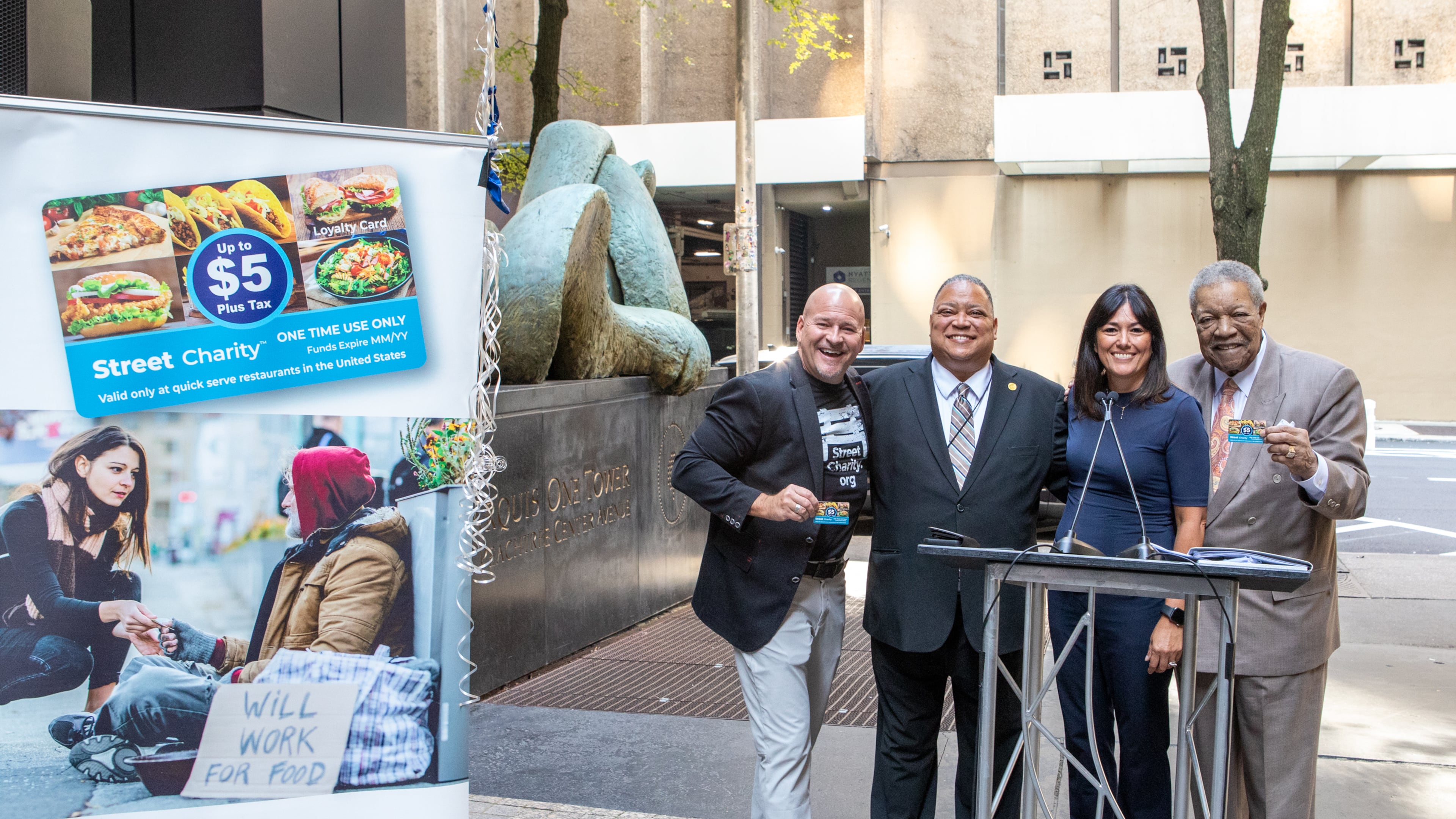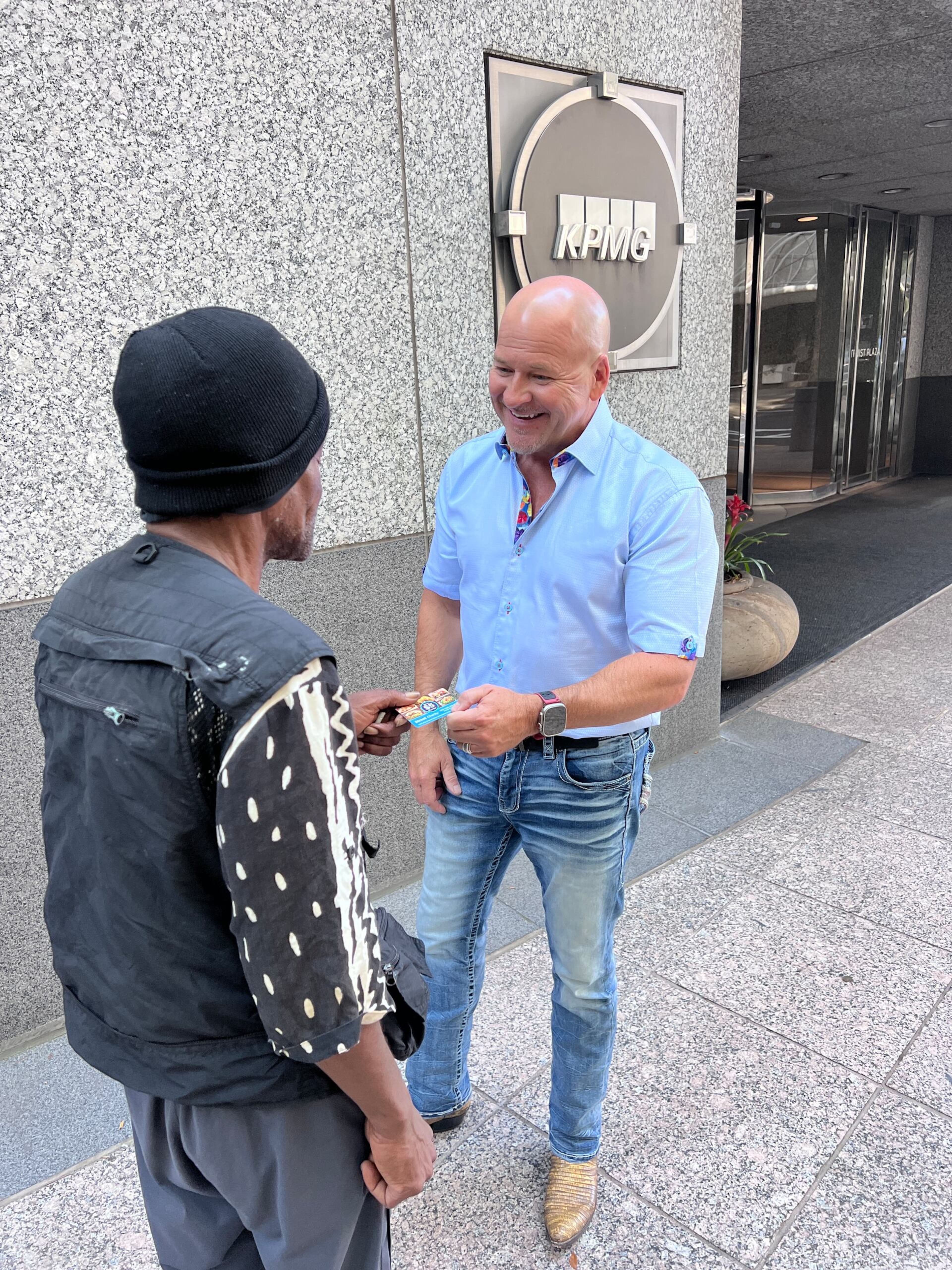A fast-food and fintech partnership can help end hunger

They say that numbers don’t lie, but when it comes to hunger, they can sure make me cry.
That’s because 47 million Americans are food insecure according to the USDA, and in Georgia, 1 in 7 people go hungry, according to the Atlanta Community Food Bank. Those are big numbers.
If I add up the 371 food banks across the country that support over 60,000 smaller food pantries and meal programs, according to Food Bank News, and then add the 5,000 soup kitchens across the country, according to End Hunger in America, I haven’t even reached 70,000 food assistance locations nationwide.
Now, enter the Quick Serve Restaurant (QSR) industry, often referred to as fast food. This massive, national network of restaurants opens early and closes late.
They are located on street corners in nearly every community with easy-to-see, lighted signs and welcoming staff. They don’t require a social worker or a government guide. They have a wide variety of options to please any palate, and they number over 200,000 locations. That’s 187% more outlets than all food assistance programs and outlets combined.
Prepaid cards can be redeemed at fast-food restaurants
In early September, the Quick Serve Restaurant industry, which topped $1 trillion in global revenue last year, came together in Atlanta for its annual convention called the QSR Evolution Conference. For the first time ever, they were introduced to a new way to address food insecurity, thanks to the nonprofit Street Charity, which I founded with my wife, Antuanette, right here in Atlanta.

We knew that handing out dollar bills wasn’t the answer to people who approached us for food, so we figured out a way to create a prepaid card, backed by the Discover Network, that can be redeemed only at fast-food and quick-serve restaurants across the country. Overnight, we turned 200,000 restaurants into locations to feed the hungry.
To me, it’s like peanut butter and jelly. We put fast food and fintech together on the same sandwich to solve a big problem. Of course, we knew that not everyone who says they want money for food will end up using the money for food.
Therefore, we made sure that if cards got lost or were not fully redeemed, the funds would expire after six months and be shared with food banks. One way or another, we made sure that someone is going to get food when a Street Charity card is handed out.
Today, there is a predominant view that the people on the street are there by their own fault or their own decision. Unfortunately, this dehumanizing perspective doesn’t hold up to the statistics. Sixty-two percent of people living in shelters are experiencing homelessness for the first time, according to the National Alliance to End Homelessness, and according to the National Coalition for the Homeless and the Safe Housing Partnership, Fifty-seven percent of all women experiencing homelessness said that the primary cause was domestic violence. Those numbers speak to the reality of millions of people who are food insecure today.
According to IBIS World, the QSR industry’s annual revenue has reached $412.7 billion. Therefore, we believed that the Quick Serve Restaurant conference was the best place to bring awareness to Street Charity’s solution to hunger.
People across the country can be part of the solution

We hope that Atlanta’s leading QSR brands, such as Chick-fil-A, Jimmy John’s, Arby’s, Popeyes and others, will be the first corporate partners to support Street Charity. These partners will be donating to a program that drives their own top-line revenue while at the same time, feeding members of their community who are facing starvation.
Street Charity’s charitable model doesn’t just enlist the QSR community. It empowers everyday people across the country to play a part in feeding people in their community, at every red light and on every sidewalk.
For each donation, Street Charity sends the donor a pack of Discover Prepaid Cards to hand out when they see the need. From churches to civic organizations to employee giving programs, individuals are equipped to be part of the solution to end hunger.
The best part of all, Street Charity cards deliver a big helping of dignity with every meal.
These cards allow someone who used to beg at the back door of a fast-food restaurant to now walk in the front door as a patron. That simple slice of dignity can help spark the necessary self-worth for someone to take the next step to get the help they need.
This is a triple win for industry, donors and those in need. However you add up the numbers, the only one that really matters is the number of full stomachs.
John Patton is the CEO and founder of StreetCharity.org.


